The Yugtun, or Alaska, script was devised in 1900 by Uyaquq (1860-1924), a Yup'ik shaman. He was inspired to create it after seeing English-speaking missionaries reading from religious texts, and being impressed that they could quote the texts using the same words every time. His descendents believe that Uyaquq first got the idea to write his language in a dream.
Uyaquq became a missionary in the Alaskan Moravian Church, and translated texts into Yup'ik. At first he used a pictographic system. However, he realised that although they were useful as a memory aid, they could not be used to represent texts accurately. Over time Uyaquq's script evolved through a number of stages until there was symbol for each of the language's syllables. A number of missionary helpers learned the Yugtun script from Uyaquq and used it in their work.
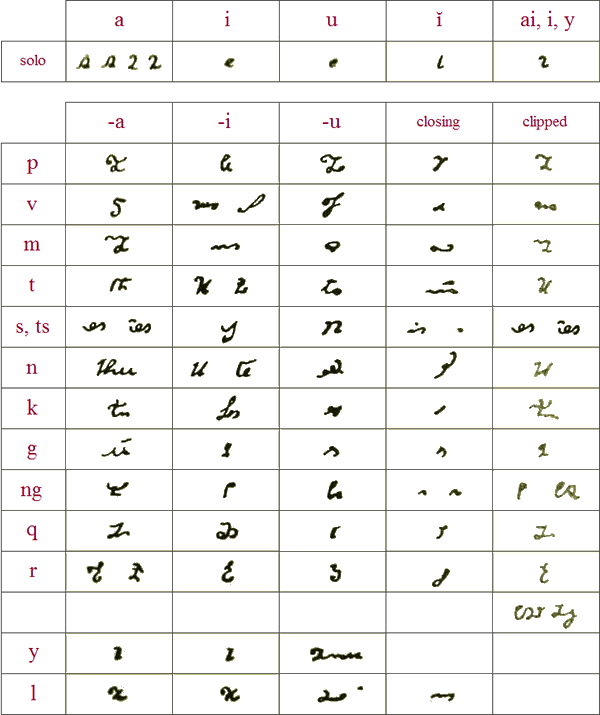
Some combinations of letters are written as ligatures, or given a special form.
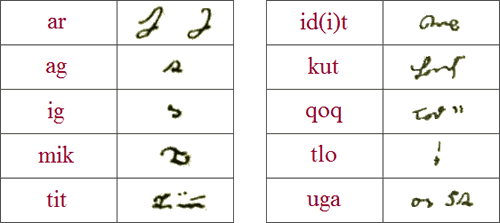
Source: http://skyknowledge.com/yupik.htm
This is the Lord's Prayer in the Yugtun pictograph script.
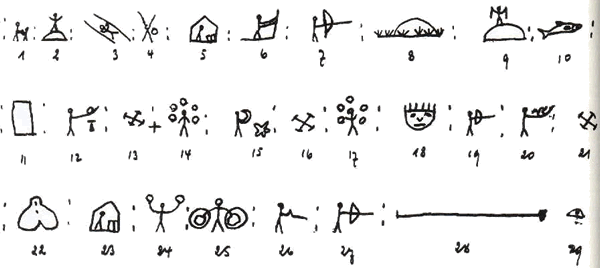
This is the Lord's Prayer in the Yugtun syllabic script.
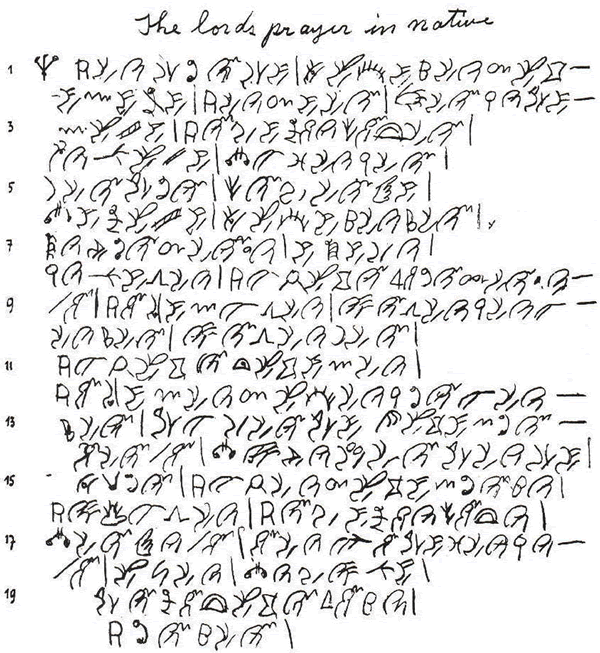
Atamta qilagamitle; ra atran kintsiknarîle; angaiyoqauvin tikitle; piskutsin nunam kaingane piyule qilagamitun; neqkamtnik erinerpak tsikerkut; ashîlingumtniktlo avariskut, vangkutsîtstun ashîlingilreît avarîtlautsimtstun; naspanarkilrämuntlo pitstarutmundlo pifkaksaunata, taugam ashîtlerämik aviuskut. Angaiyoqauvik pineqtlo utsorunarkutseqtlo itlpit pikngafke nangiyunílingoramik. Âmen.
Source: http://www.christusrex.org/www1/pater/JPN-inuit.html
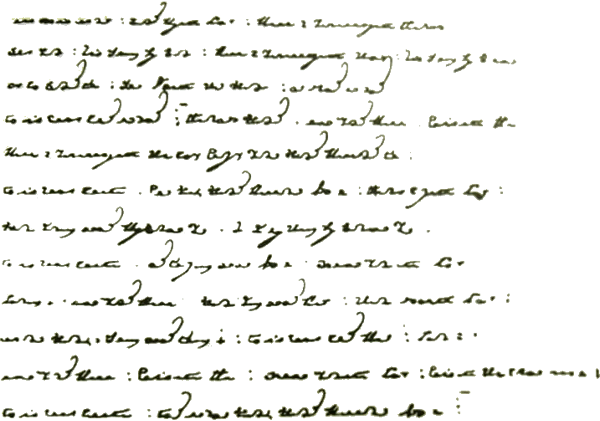
Source: http://skyknowledge.com/yupik.htm
Information about Central Alaskan Yup'ik | Information about Central Siberian Yupik | Yugtun scripts | Numbers (Central Alaskan Yup'ik) | Numbers (Central Siberian Yupik) | Tower of Babel
Information about Uyaquq and the Yugtun scripts
https://en.wikipedia.org/wiki/Uyaquq
https://en.wikipedia.org/wiki/Yugtun_script
http://skyknowledge.com/yupik.htm
Afaka, Bamum, Caroline Island Script, Celtiberian, Cherokee, Cypriot, Dunging (Iban), Eskayan, Hiragana, Iberian, Katakana, Kpelle, Loma, Mende (Kikakui), Mwangwego, Nüshu, Nwagụ Aneke, Vai, Yi, Yugtun
Page last modified: 15.03.23
[top]
You can support this site by Buying Me A Coffee, and if you like what you see on this page, you can use the buttons below to share it with people you know.

If you like this site and find it useful, you can support it by making a donation via PayPal or Patreon, or by contributing in other ways. Omniglot is how I make my living.
Note: all links on this site to Amazon.com, Amazon.co.uk
and Amazon.fr
are affiliate links. This means I earn a commission if you click on any of them and buy something. So by clicking on these links you can help to support this site.
[top]